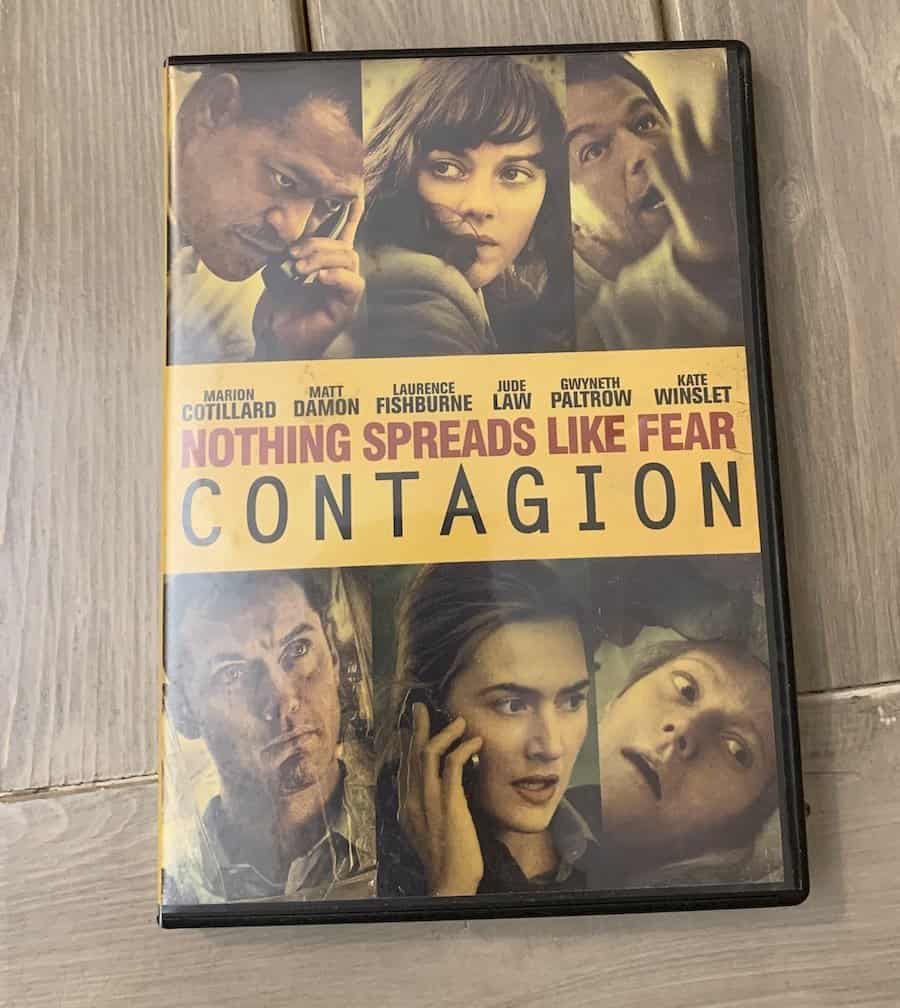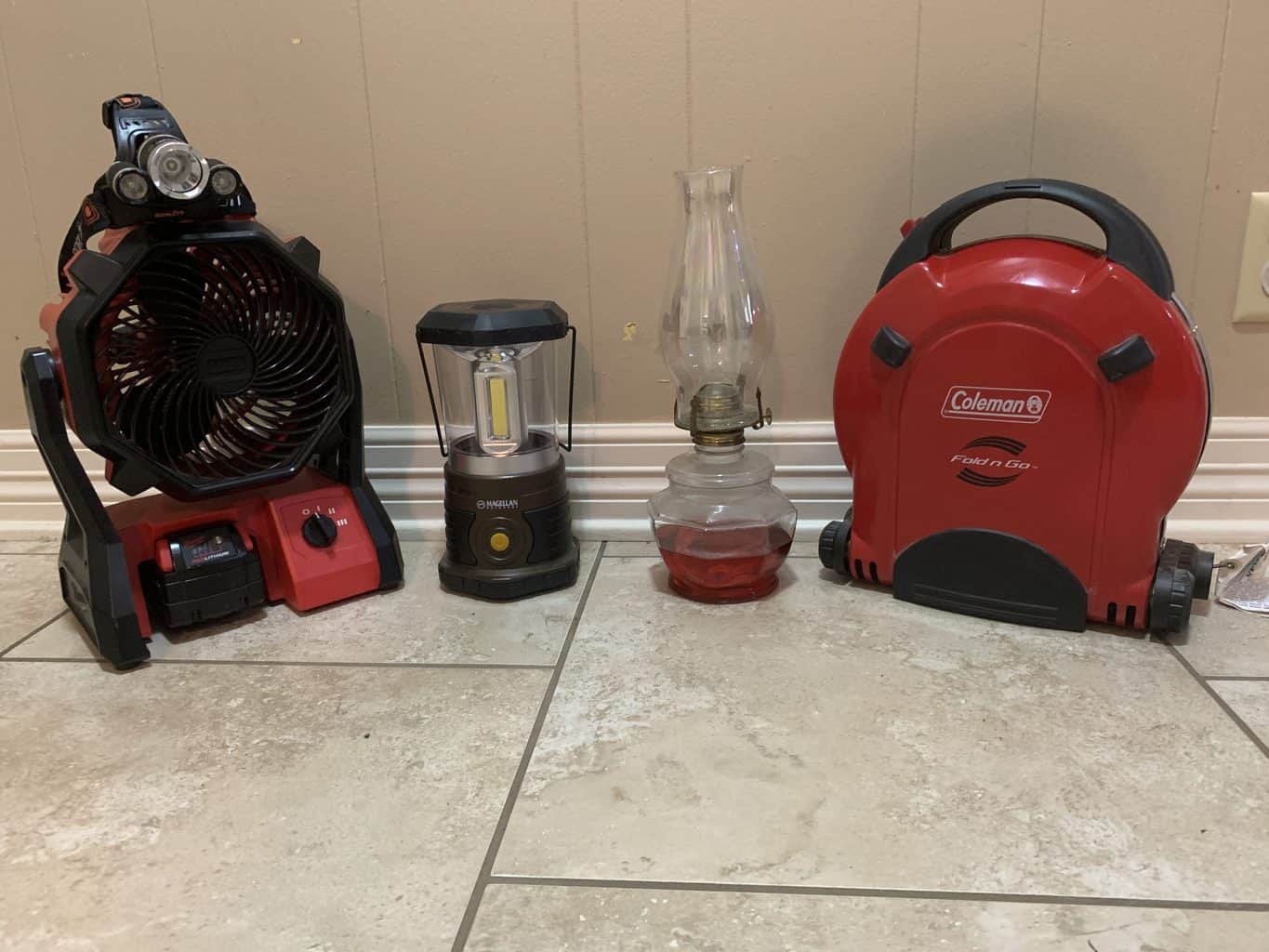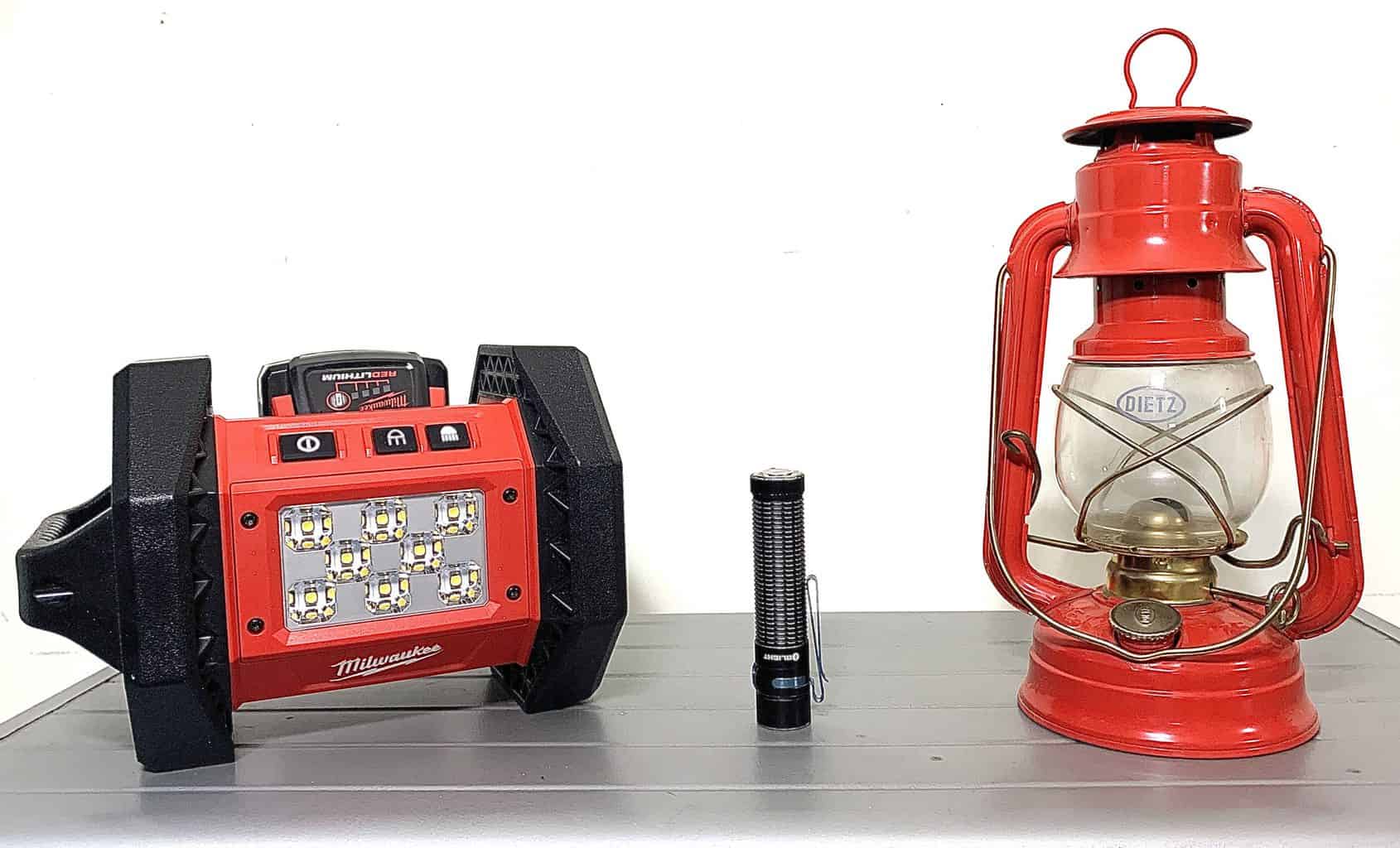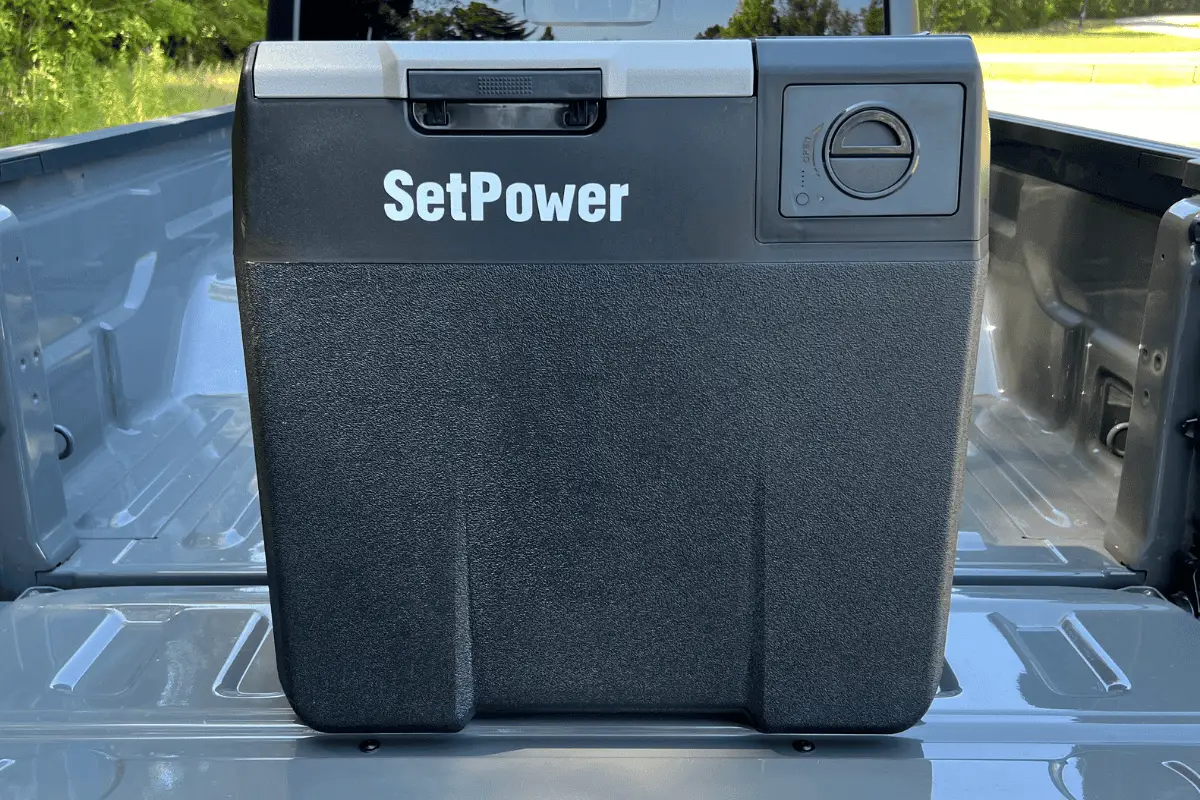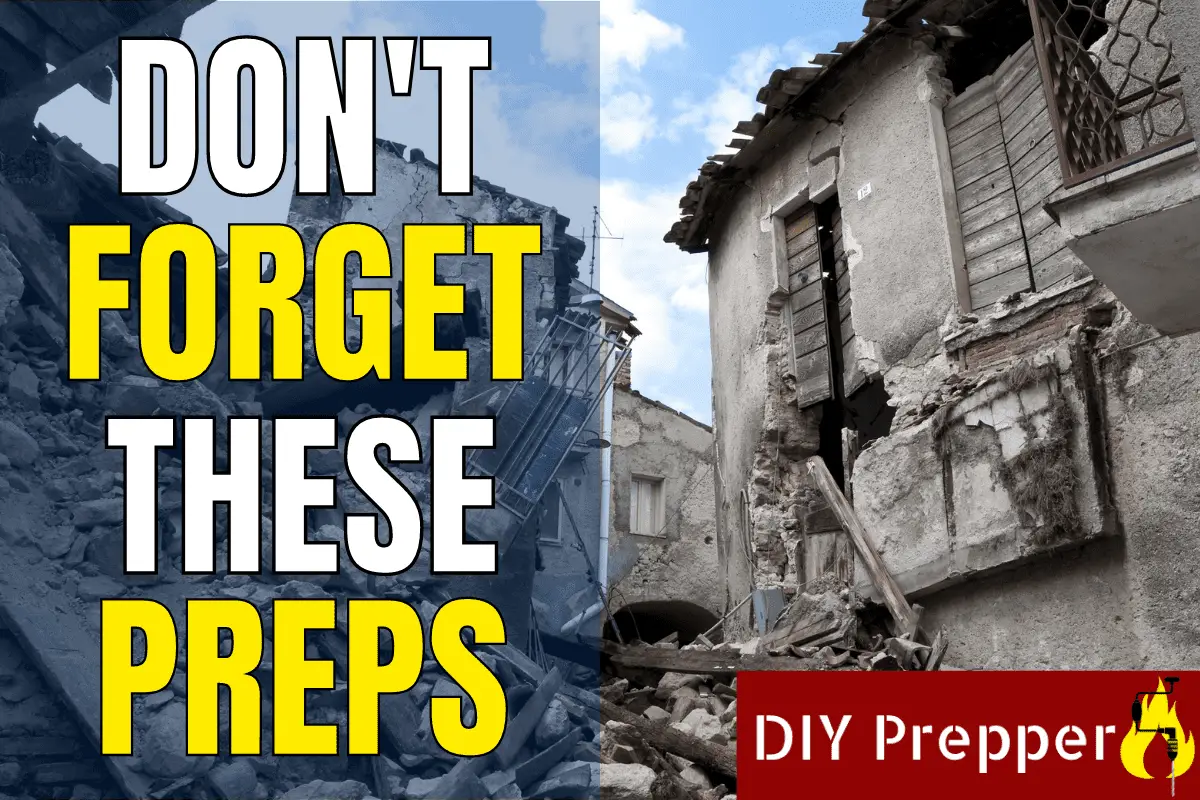How to Survive a Summer Power Outage
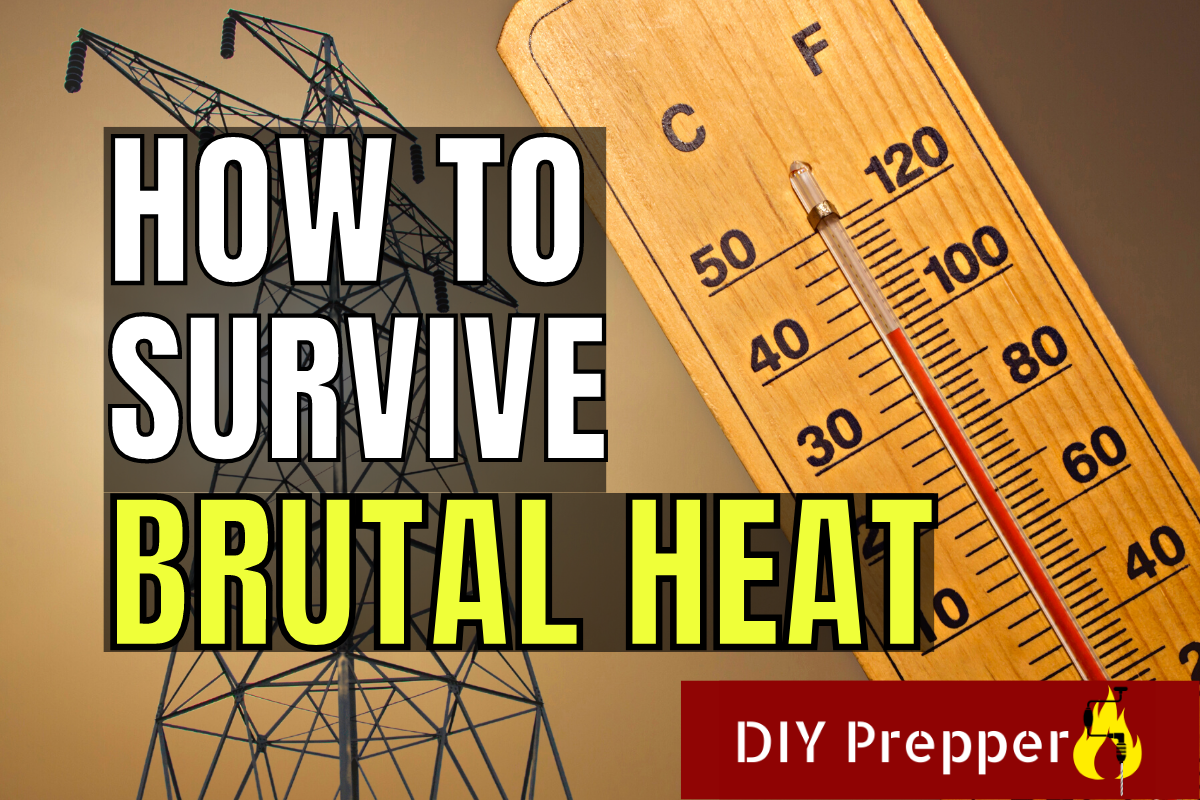
When combined with a power outage, summer heat can be extremely dangerous. Fortunately, there are several things that can help you survive and be much more comfortable during a summer power outage.
Some of the best ways to survive a summer power outage are:
- Regulating your body temperature
- Avoid cooking inside
- Don’t use candles
- Use battery-operated fans
- Utilize alternative air conditioning
- Use windows
In this article, I’ll go over specific ways to implement these tips along with some other things you can do to stay cool. You’ll also see ways that you can reduce food spoilage when the power goes out.
Regulate Your Body Temperature
If you’re going to survive a summer power outage, you must do what you can to regulate your body temperature. Failure to do this could result in heat exhaustion or heat stroke. However, there are several things that you can do to help with this.
Start by trying to keep your head and neck as cool as possible. Wear a well-ventilated lightweight hat and drape a cooling towel over the back of your neck. You can soak the hat as well if you need additional cooling.
In addition to your head and neck, there are other parts of your body that you can use to regulate your body temperature. Places such as the inside of your elbows and knees and your groin have major arteries or blood vessels very close to the surface.
Placing things like cold packs or other cool items over them can help cool your blood as it passes underneath them. This cooled blood will circulate and help reduce your overall body temperature. This can be used to help people suffering from heat-related illnesses.
Stay Hydrated
Making sure that you stay well-hydrated is one of the most important things to do during a summer power outage. Drinking lots of water is essential but you should also drink other things like Gatorade.
Gatorade and other electrolyte solutions can help you replace other things that your body loses through perspiration. You should avoid drinking beverages that have caffeine or alcohol since they can contribute to dehydration.
In addition to drinking water, you can also use it to cool the outside of your body. Doing things like soaking your feet or taking a cool shower can help lower your body temperature. Just don’t get too cold since shivering will raise your body temperature.
Wear Light-Weight Clothes
The clothing that you wear can also determine how you will fare in hot temperatures. Wearing light-colored, lightweight, and loose-fitting clothes will help greatly.
Lightly-colored clothing will tend to reflect heat and light rather than absorb it like darker colors. Lightweight fabrics will not trap body heat as easily, and loose-fitting clothes will allow air to circulate around your body.
Go Somewhere Else
One of the easiest ways to deal with a summer power outage is to go somewhere else. If you have a relative who still has power and you can reach them, there’s no shame in retreating for a few hours or a couple of days.
Short power outages may be a good time to visit a good used book store or your favorite sporting goods shop.
If you must stay around your home, you may find that the temperature outside is actually cooler than it is inside of your home. In a situation like this, setting up a tent in your backyard may be a good idea since they are usually well-ventilated.
Avoid Cooking Inside

If you’re dealing with a summer power outage, one of the worst things you can do is cook inside. Many homes have gas ovens and stovetops that may still work during a power outage, however, these should be avoided if possible.
Very few appliances in your home will heat it up faster than ovens or stoves. Because of this, you should use outdoor cooking methods whenever possible.
Using things like charcoal grills and propane camp stoves will allow you to prepare meals without raising the temperature inside. If you know that a power outage is going to last for more than a few hours, having a cookout could be a good way to prevent at least some of your food from spoiling before you can enjoy it. This is especially true if you don’t own a generator.
Related: The Prepper’s Complete Guide to Buying a Generator
Don’t Use Candles
Another thing you can do to help you survive a summer power outage is to avoid using things like candles, oil lamps, and propane lanterns. Each one of these lighting methods generates heat and will make staying cool more difficult.
LED lighting options are an excellent alternative. Since they’re energy-efficient, they stay relatively cool while in use. They’ll provide a large amount of light without heating up the inside of your home.
It’s a good idea to have a mix of personal lighting such as flashlights and headlamps along with area lighting such as LED lanterns. Having rechargeable batteries for these devices along with a solar generator should allow you to keep them running almost indefinitely.
Related: 8 Kinds of Technology You Want to Have After a Collapse
Battery-Operated Fans

One of the best ways to stay cool during a summer power outage is to use battery-operated fans. Like with lights, using rechargeable batteries in your fan and keeping them charged with a solar generator should keep them running for a very long time.
While some battery fans have internal rechargeable batteries, I prefer the ones that use either traditional D-cell batteries or power tool batteries. This will prevent your fan from becoming worthless just because one battery happened to fail.
Many tool manufacturers produce cordless fans that run on the same batteries as their power tools. I have one made by Milwaukee, however, other companies like DeWalt and Makita have similar products for their lineups as well.
For fans that use D-cell batteries, you can find rechargeable D batteries or you can use spacers like these produced by Eneloop. For rechargeable D-cells, I recommend getting the ones that have a 10,000 mah capacity. You can find batteries like this and a charger for them by clicking here.
The battery spacers that I mentioned above allow you to insert one of Eneloop’s AA batteries into an adapter that will allow you to use them in devices that use D-cells. They won’t have as high of a capacity, but the voltage will be the same, making them compatible.
Alternative Air-Conditioning Methods
If you have a battery-operated fan, you may also be able to utilize some alternative air conditioning methods. The most simple example of this would be hanging a wet towel and placing a fan behind it. The fan will evaporate the water and create a slightly cooler breeze.
A fancier version of this would be a swamp cooler, also known as an evaporative cooler. You can find instructions on how to build one using a 5-gallon bucket by clicking here.
You can also use a fan, a cooler, and some ice to create a makeshift air conditioner. However, you will still need a way to obtain ice, so this may not be viable during a long-term emergency situation.
If you plan on utilizing any of these methods, make sure to get the supplies that you need ahead of time. You may not be able to find them when you need them.
Use Your House to Your Advantage
There are also ways that you can use your home itself to help you survive a summer power outage. The most obvious one is to use your windows.
If you live in an older home that has windows that open from the top and the bottom, then you have a big advantage. Windows such as these were specifically designed to help air circulate through your home.
You can also hang damp towels or clothing in your windows to perform a similar function to that of an evaporative cooler. It won’t lower the temperature a lot but it will help take the edge off.
If you live in an area with insects such as mosquitos, having screens on your windows is essential. They will allow you to have the ventilation that you need without inviting every blood-sucking insect in the county into your home.
In addition to screens, you can also grow plants such as rosemary, basil, and lavender near your windows. Mosquitos don’t like plants such as these, so they can help keep them away.
You can also close the drapes on the sunny side of your home to help prevent it from turning into a greenhouse and drop the AC in your home if you know a power outage is coming. Some outages, such as rolling blackouts are somewhat predictable, so you can lower the temperature inside to get a head start.
Sealing leaky doors and windows is another way to keep your house cool. You can seal these up now the right way to help reduce your electrical bill or use wide painter’s tape such as this during an emergency. Keeping your home well-insulated and staying on the lowest level of your home will help as well.
How to Prevent Food Spoilage During a Power Outage
One of the worst things about a summer power outage is how quickly your food can spoil. However, there are some things that you can do to save at least some of your groceries.
Having a gas generator is a good way to keep your refrigerator and a few other appliances up and running. As long as your generator can support your devices’ wattage, you can keep them going until you run out of fuel.
A large solar generator should be able to keep a small box freezer running for a while. They don’t run as much as a refrigerator and usually use less power while they are running. Because of this, it may be a good idea to sacrifice what’s in your fridge to save what is in your freezer. You can always save more expensive items in your refrigerator, such as meat, by moving them into your freezer.
12-volt refrigerator freezers are another good option. This one made by Setpower only uses around 75 watts when it first starts and will use even less power when it cools down. If it’s filled with frozen food, it should last for days using a solar generator such as the Ecoflow Delta Max.
Related: Can a Solar Generator Run a Refrigerator?
What You Need to Know About Window Air Conditioners
One way that some people plan to survive a summer power outage is to use a window air conditioning unit connected to a generator. However, this is something that you must be extremely careful with.
Air conditioners such as these were designed to be plugged directly into a wall outlet. Many fires happen because someone tried to run one while using an extension cord that was too small for the job. Because of this, I would caution against attempting this.
Window air conditioners are best used when you have a large generator hooked to a transfer switch that will provide power directly to a wall outlet. They are also a good option if you still have power but your home’s central air system goes out.

